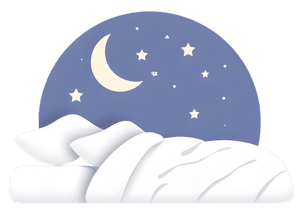Recent findings from various studies highlight the significant role sleep plays in maintaining and improving health.
Enhanced sleep quality can lead to better cognitive function and emotional resilience.
Interestingly, researchers have identified a strong link between REM sleep and memory enhancement.
Techniques aimed at improving insomnia often focus on best practices for sleep hygiene.
These developments suggest that small changes to evening routines can remarkably increase sleep duration.
Embracing these strategies may transform our daily experiences and overall well-being.
Click here to learn more about: bettersleephq.com
Understanding Sleep Quality And Health Outcomes
Achieving optimal well-being is closely linked to various factors, particularly sleep quality. Consistently high sleep efficiency is pivotal for enhancing cognitive function and maintaining emotional equilibrium.
Conversely, disrupted sleep patterns can lead to notable increases in daytime sleepiness and a weakened immune response.
Studies indicate a strong connection between sleep deprivation and multiple health issues, including cardiovascular disease.
Efforts to improve sleep quality, such as implementing effective interventions like a regular sleep schedule or optimizing the sleep environment, are necessary steps. Melatonin also significantly influences sleep cycles, emphasizing the role of restorative sleep for maintaining good health.

How Sleep Duration Affects Daily Function
The relationship between sleep duration and daily performance reveals significant insights into well-being. Cognitive performance declines with insufficient sleep, affecting decision-making and concentration.
Research indicates that inadequate sleep can lead to chronic insomnia, which further complicates health outcomes.
Physical performance also suffers; athletes often experience reduced strength and endurance when sleep is lacking.
Tracking sleep patterns is essential for identifying optimal durations tailored to individual needs.
Behavioral medicine approaches emphasize establishing routines that promote better sleep quality.
Relaxation techniques before bedtime can improve both duration and quality, enhancing daily performance significantly. Light exposure during the day can also help regulate natural circadian rhythms, leading to better sleep outcomes.
Sleep Duration and Daily Performance
- Studies show that adults require 7-9 hours of sleep for optimal cognitive function.
- Chronic insomnia affects approximately 10-15% of the population, leading to long-term health issues.
- Athletes who sleep less than 7 hours per night may experience a 20% decrease in performance levels.
- Incorporating relaxation techniques can improve sleep quality by up to 50%, enhancing overall daily performance.
Exploring Circadian Rhythm And Sleep Architecture
Biological clocks play a fundamental role in regulating sleep structure and influencing overall health. Circadian systems determine sleep-wake cycles, shaping the mechanics of sleep architecture.
Research studies demonstrate how alignment with these rhythms can enhance sleep quality.
Disruptions in circadian patterns often lead to increased fatigue management difficulties.
Light exposure in our environment significantly impacts these biological processes and can affect sleep latency. Regular sleep schedules, as shown in various assessments, improve mood and strengthen well-being.
Investigating how these rhythms function is essential for effectively addressing sleep disorders, including insomnia, which can severely influence daily functioning.
What Are The Effects Of Sleep Apnea
Health issues arise when sleep disorders disrupt normal patterns. Sleep apnea is a condition where breathing interruptions occur repeatedly, resulting in significant complications.
Research shows a strong association between this disorder and cardiovascular diseases such as hypertension and heart failure.
Metabolism can be adversely affected, leading to weight gain and an increased risk of diabetes among individuals.
Disturbances in cognitive function often emerge, impacting memory and learning abilities. Anxiety disorders and depression frequently correlate with the condition, highlighting the psychological implications.
Daily activities suffer due to disrupted REM sleep, creating challenges such as excessive daytime sleepiness. Recognizing these health implications is paramount for improving overall wellness.
Sleep Disorders
- Sleep apnea is linked to a 30-40% increased risk of developing hypertension.
- Individuals with sleep apnea are 2-3 times more likely to develop type 2 diabetes.
- Disrupted REM sleep can lead to a 50% increase in daytime sleepiness and impaired cognitive function.
- Approximately 40% of individuals with sleep apnea also experience anxiety or depression.
Strategies For Improving Sleep Hygiene And Relaxation Techniques
Achieving restful slumber requires a commitment to daily practices that significantly enhance sleep hygiene. Establishing a consistent sleep schedule directly influences overall immune function and supports the body’s natural rhythms.
Incorporating a calming bedtime routine fosters relaxation, which is pivotal for effective stress management.
A conducive sleep environment, devoid of distractions, plays a key role in maximizing sleep efficacy.
Engaging in mindfulness meditation can yield profound benefits for those seeking to alleviate anxiety. Incorporating breathing exercises into your nightly ritual aids in promoting deeper sleep.
Recognizing how various lifestyle factors interplay with your rest can lead to substantial improvements in sleep quality. Cognitive behavioral therapy offers valuable recommendations for individuals grappling with insomnia.
By focusing on these targeted strategies, achieving restorative sleep becomes a more attainable goal.


